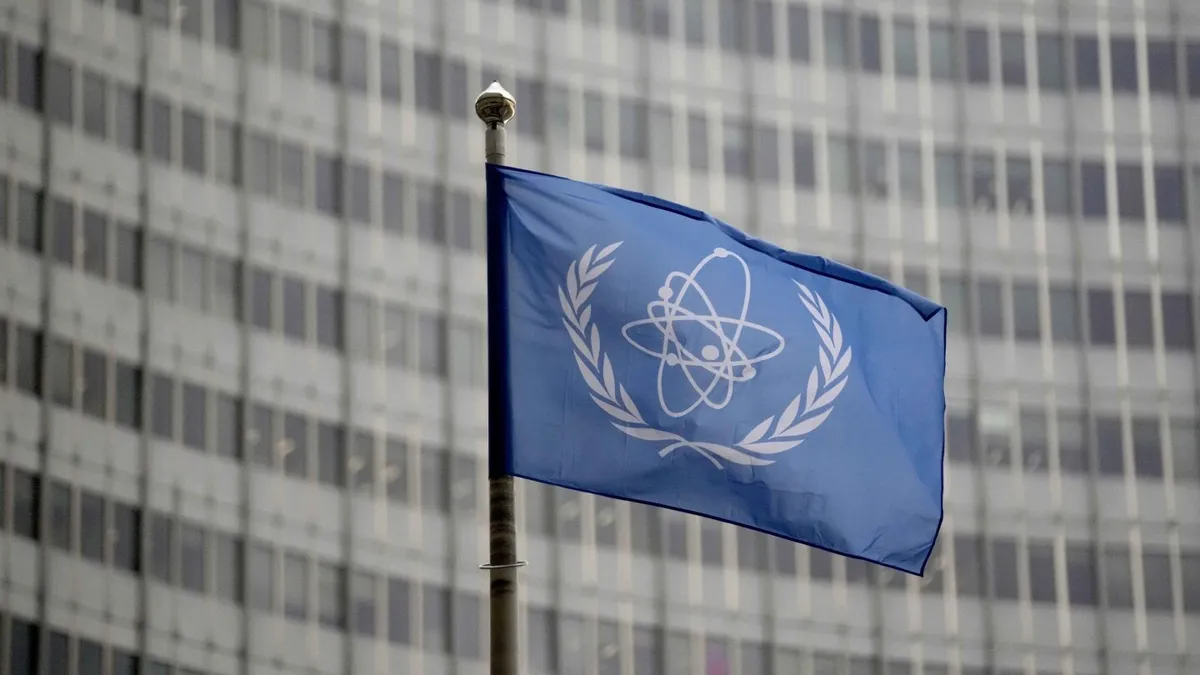
On Thursday, the United Nations nuclear watchdog, known as the International Atomic Energy Agency (IAEA), formally determined that Iran is not adhering to its nuclear obligations. This significant resolution marks the first instance in 20 years that the IAEA's board of governors has taken such a stance against Tehran. This decision could escalate tensions in the region and initiate a process aimed at reinstating UN sanctions on Iran later this year.
In response to the IAEA's findings, Iran announced plans to establish a new enrichment facility at a secure location, alongside other undisclosed measures. The Iranian Foreign Ministry, in a joint statement with the Atomic Energy Organization of Iran, declared, “The Islamic Republic of Iran has no choice but to respond to this political resolution.”
The resolution received overwhelming support from 19 countries on the IAEA's board, which represents its member nations. Only Russia, China, and Burkina Faso opposed the resolution, while 11 nations abstained and two did not participate in the voting process. The draft resolution, shared with the Associated Press, reiterates a call for Iran to provide prompt answers regarding a long-standing investigation into uranium traces discovered at several locations that Iran has not declared as nuclear sites.
Western officials harbor suspicions that these uranium traces might indicate Iran operated a clandestine nuclear weapons program until 2003. The resolution was introduced by a coalition of Western powers, including France, the United Kingdom, Germany, and the United States. Following the vote, Behrouz Kamalvandi, spokesman for the Atomic Energy Organization of Iran, stated that Tehran has notified the IAEA of “specific and effective” actions it plans to implement, including the establishment of a third secure enrichment site.
Iran currently operates two underground sites in Fordo and Natanz, and it has been constructing tunnels in the mountainous region near Natanz since a series of suspected Israeli sabotage attacks targeted its facilities. Additionally, Kamalvandi indicated that the introduction of advanced centrifuges at Fordo will significantly boost Iran's production of enriched materials.
The draft resolution highlights Iran's multiple failures to comply with its obligations since 2019, particularly in providing full and timely cooperation regarding undeclared nuclear materials and activities at various undisclosed locations. These failures constitute a breach of its Safeguards Agreement under the Nuclear Non-Proliferation Treaty (NPT), which mandates that Iran must declare all nuclear materials and activities and allow IAEA inspectors to verify that none are being diverted from peaceful uses.
The resolution also underscores the IAEA's inability to assure that Iran’s nuclear program is exclusively peaceful, raising concerns that fall within the purview of the United Nations Security Council, which bears primary responsibility for maintaining international peace and security.
This vote occurs amid escalating tensions in the region, particularly as the U.S. State Department announced plans to reduce the number of personnel deemed non-essential in the Middle East. In the backdrop, U.S. President Donald Trump has previously indicated that military action, including possible airstrikes against Iranian nuclear facilities, could be on the table if diplomatic negotiations falter.
Oman’s foreign minister indicated that a sixth round of negotiations regarding Iran’s rapidly advancing nuclear program is set to take place in Oman on Sunday. The draft resolution explicitly mentions support for a diplomatic resolution to the issues posed by Iran's nuclear program, encouraging all involved parties to engage constructively in diplomacy.
A senior Western diplomat characterized the resolution as a “serious step” while also emphasizing that Western nations are not closing the door on diplomatic solutions. However, failure by Iran to cooperate could lead to an extraordinary IAEA board meeting in the summer, where another resolution may be passed to refer the issue to the Security Council.
The three European nations involved have previously warned that they would reinstate sanctions that were lifted under the original 2015 Iran nuclear deal if Iran does not provide “technically credible” answers to the IAEA's inquiries. The authority to reestablish these sanctions will expire in October, creating a sense of urgency for the West to exert pressure on Tehran over its nuclear program before losing that leverage.
The resolution follows the IAEA's recent “comprehensive report,” which indicated that Iran's cooperation has been less than satisfactory regarding the uranium traces discovered by inspectors at multiple sites. One site, revealed publicly in 2018 by Israeli Prime Minister Benjamin Netanyahu, was described as a clandestine nuclear storage facility hidden within a rug-cleaning plant, an allegation that Iran has consistently denied. Despite its denials, in 2019 IAEA inspectors identified uranium traces at that site and two others.
As the situation continues to evolve, the international community remains watchful of Iran's next steps and the potential implications for global nuclear security.